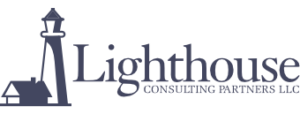First Things First: Set Your Family Governance Plan for Success
Some Tips to Preserving Your Wealth, Your Family and Your Legacy
By Ken Ude
 My lifetime business mentor taught me that if a business has a strong Mission Statement and defined Values, tough decisions become easier to make. A strong Mission Statement and defined Values become your moral compass. The same holds true for families. If you know who you are and what you stand for, family decisions become easier. In the process of discussing who you are what you stand for, the family unit becomes closer and more aligned. In working on a Plan to build your family’s foundation you become stronger as a family unit. This is particularly important for families of wealth.
My lifetime business mentor taught me that if a business has a strong Mission Statement and defined Values, tough decisions become easier to make. A strong Mission Statement and defined Values become your moral compass. The same holds true for families. If you know who you are and what you stand for, family decisions become easier. In the process of discussing who you are what you stand for, the family unit becomes closer and more aligned. In working on a Plan to build your family’s foundation you become stronger as a family unit. This is particularly important for families of wealth.
THE POWER OF PUTTING IT IN WRITING
For the past 10 years PwC has done a worldwide survey approximately 500 family businesses to identify emerging trends. One of the findings of the 2021 PwC Family Business Survey was a strong correlation between defined and written values and overall business performance. Well defined and written values promote:
• Better performance. 58% of family businesses with values in a written form saw growth vs 52% Those family businesses that did not.
• More transparency. 77% of family businesses with values in a written form say information is shared in a transparent and timely way between family members, vs 54% for those that did not.
• More supportive staff. 54% of family businesses with values in a written form provide emotional/mental health support to staff, vs 39% for other family businesses.
• Better prepared for succession. 41% of family businesses with values in a written form have a robust, documented and communicated succession plan in place vs 20% for other family businesses.
I believe that wealth is relative. You don’t have to have a multimillion-dollar portfolio to have some of the challenges that come with wealth. If you have significantly more money that your prior generation you can run into some of the same issues many HNW families face: poor communications, lack of mutual trust, misunderstandings, entitlement, lack of motivation and not understanding the responsibility that comes with wealth.
Learn From Others: Build your personal network and learn from others by joining YPO, Vistage, FOX or other family business peer groups.
FAMILY SUCCESS: WHAT IS YOUR DEFINITION?
Where do you start to set your family up for success? It depends on your definition success and what you want your Family Legacy to look like. Some of the components of success that many families consider include:
• High functioning and motivated youth.
• The operating and/or investment businesses beating all benchmarks.
• Great stewards of the wealth.
• Good balance between business, family, community, faith and personal growth.
• Supportive communications.
• Family unity and having fun together.
Defining and creating a plan for success starts with a well-defined “business plan” for the family. A Plan that defines Mission, Vision and Values. A Plan that creates communications, transparency and governance. A Plan that addresses the purpose of the wealth and stewardship of the wealth. A Plan that educates and motivates the next generations to be entrepreneurial and to create additional wealth to extend you legacy. When you tie all of these topics into one document you have effectively created a Family Constitution.
WEALTH IS MORE THAN FINANCIAL: THE THREE CAPITAL ACCOUNTS
Before diving into the components of a Family Constitution, we need to consider the different aspects of wealth. Wealth is not just financial in nature. In his book Family Wealth, Keeping It in the Family, James Hughes, Jr, outlines that family wealth is more than financial. There are three different capital accounts: financial capital, intellectual capital and human capital.
 • Human Capital: consist of the individuals who make up the family including effective parenting, communications, consensus building, conflict resolution, leadership training, values, morals, ethics, spirituality and goal setting.
• Human Capital: consist of the individuals who make up the family including effective parenting, communications, consensus building, conflict resolution, leadership training, values, morals, ethics, spirituality and goal setting.
• Intellectual Capital: is comprised of the knowledge gained through the life experience of each family member, or what each family member knows including education, career choices, coaching and mentoring, governance and the rights and roles of trustees and beneficiaries.
• Financial Capital: is the movable and immovable property that it owned. Financial capital allows the Human and Intellectual Capital to grow and flourish. Topics include creating wealth, managing and investing wealth, effective transfer strategies, financial parenting and understanding the psychology of money.
A legacy family understands and executes a Plan to build on each of these Capital Accounts. As you start to think about your constitution and governance structure you need to consider and make provisions to build each of these Capital Accounts within your family unit.
Ask the Following Questions … Often: Who, What, Where, When, Why, How, How Much
FAMILY CONSTITUTION & ESSENTIAL GOVERNANCE TOOLS:
The Constitution of the United States defines how the Country will operate. It is a concise statement of national principles that has evolved to meet the changing needs of a modern society. The preeminent book in creating a Family Constitution is The Legacy Family, by Lee Hausner and Douglas Freeman. They point out that “a very common step used by Legacy Families is the create of a Family Constitution, which formally sets the rules for the family’s governance, power sharing, communications and problem solving”. A Family Constitution normally includes some of the following topics:
• Mission Statement. The Mission Statement defines who your Family is and what it stands for.
• Values. What you believe is defined in your Values. Examples of family value statements can include:
– Honesty
– Humility
– Integrity
– Giving back
– Caring for others
– Empathy
– Faithful
• Vision Statement. If Forbes profiles your family’s journey 40 years from now … what do you want the headline and the message of the article to be? Were you good stewards of all of your Capital Accounts and leave a lasting Legacy, or did you come up short? An inspirational Vision Statement can become the North Star for your Family’s journey.
• Governance. Think about how your family is going to make decisions in the different areas of its journey. Who is going to decide what and in what manner? What areas do you want non-family members involved? Do you need an Investment Committee? Small families might not need a Family Council, where larger ones do. If there is an operating business, who oversees it and how? Who will be the next leader of the business and how does that transition occur? Does the Family Office need an advisory body? Who do these governance polices apply to? Your governance structure should reflect that families are dynamic as they grow and change. Allow for that to happen.
• Family Employment Policy. If you have an operating business or a family office a Family Employment Policy can be helpful. It defines under what conditions a family member can enter, be employed or exit the family business. Consider some of the following questions:
– What education is required?
– Does the candidate need to get outside experience before entering the business?
– Does there need to be a legitimate business reason for the position?
– Do they get paid the same as non-family members?
– How are promotions handled?
– Who do they report to?
– Can they get terminated?
– What family members do these policies apply to?
Wouldn’t it be nice to have all of the above defined and agreed upon in writing, before your brother calls and says that his son lost his job and is hopeful that you can give him one …
• Communications Plan. “If they don’t know the truth, they will make something up” … and it will become their truth, so it is better to get ahead of this train right at the beginning with open communications and transparency. People learn and digest information differently. Some are verbal learners. Some visual. Understand how the different members of your family absorb and process information and tailor your communications plan accordingly. Define who gets access to what information. At what age? At what level of detail? What about spouses and in-laws? Define the timing and cadence of the flow of information. What information do you want accessible daily, vs monthly, vs quarterly or for an Annual Report.
Model the Behavior that You Want Your NextGen to Have:
• If you want them to work. Go to work.
• If you want them to be healthy. Live a healthy lifestyle.
• If you want them to be humble. Be humble.
• Education Plan. Education is about helping family members become the best version of themselves as possible. This includes formal academic education, continuing education, retreats, seminars, motivation, inspiration. Define, in writing, what funding is available to whom, for what, and what is the expected outcome.
• Financial Literacy is really important. Not everyone is a ‘numbers person’ but to be a responsible owner I believe that every adult family member needs to be able to read and understand an Income Statement, Balance Sheet and Statement of Cash Flows. Moreover, they need to understand investment performance benchmarks to be able to access whether their operating company and their portfolio is performing to expectations. Building business and financial acumen should be an important part of the Communications and Education plan. Financial Intelligence, A Manager’s Guide to Knowing What the Numbers Really Medan by Karen Berman and Joe Knight does a good job of explaining numbers in a non-accounting way.
• Family Health. Most families make family health a priority and make resources available to support it. If it is also important to you define to what extent your family’s wealth will support. Covering health insurance premiums might be in the Plan, while paying for yoga classes might not be.
 • The Family Bank can be used to spur NextGen entrepreneurial spirit. This is an interesting concept. Assume that the family business is in manufacturing, but someone in the NextGen has NO interest in manufacturing but does have an interest in restaurants. The Family Bank could be tapped into to secure a franchise so that the NextGen can learn if they really like the restaurant industry, or if it was a passing fade. There is one Orange County family that used their family bank to motivate the NextGen’s to learn about real estate and become real estate investors. Some of the ground rules of their bank was: a) The investment had to be in real estate. b) There had to be a formal business plan. c) The Plan had to be approved by the Family. d) The funding was in the form of a no-interest loan. e) The loan had to be paid back within 18 months. If these conditions were met, the father would make all of the resources of his company available to the project. You can guess that the father was a successful real estate developer an investor.
• The Family Bank can be used to spur NextGen entrepreneurial spirit. This is an interesting concept. Assume that the family business is in manufacturing, but someone in the NextGen has NO interest in manufacturing but does have an interest in restaurants. The Family Bank could be tapped into to secure a franchise so that the NextGen can learn if they really like the restaurant industry, or if it was a passing fade. There is one Orange County family that used their family bank to motivate the NextGen’s to learn about real estate and become real estate investors. Some of the ground rules of their bank was: a) The investment had to be in real estate. b) There had to be a formal business plan. c) The Plan had to be approved by the Family. d) The funding was in the form of a no-interest loan. e) The loan had to be paid back within 18 months. If these conditions were met, the father would make all of the resources of his company available to the project. You can guess that the father was a successful real estate developer an investor.
• Philanthropy and Giving Back. Your family plan may wish to address your desires and plan to give back.
• Family Fun. A family Governance and Communications program cannot be all work and no play. You need to weave some fun and team building into the program. Best in Class families create a series of:
– Family Meetings, to make sure the communications remain open and transparent.
– Family Retreats, that are a combination of business updates, personal development and fun.
Develop well planned Family Leadership Summits
HOW DO YOU START
 This journey takes time, and it is important to get started. It can, however, very difficult to accomplish by yourself. Most families find it useful to engage a guide to help you navigate all of these topics before they become issues. It is important to understand that there are “Quantitative” issues and there are “Qualitative” issues. Most of the family business consultants and advisors are “Quants”. Most of the tougher issues to navigate are on the “Qual” side of the house. A balance of Quant and Qual is important since there is potentially so much at risk.
This journey takes time, and it is important to get started. It can, however, very difficult to accomplish by yourself. Most families find it useful to engage a guide to help you navigate all of these topics before they become issues. It is important to understand that there are “Quantitative” issues and there are “Qualitative” issues. Most of the family business consultants and advisors are “Quants”. Most of the tougher issues to navigate are on the “Qual” side of the house. A balance of Quant and Qual is important since there is potentially so much at risk.
FINAL RECOMMENDATIONS
The 2021 Global Family Business Survey by PwC had the following recommendations for families to consider:
• Professionalize family governance. Having a professional governance structure and a clear process for conflict resolution, preferably involving an independent party, make business sense, particularly for a family business. A professional approach strips emotion and personal bias, common stumbling bocks for families, out of decisions.
• Governance should reflect that families are dynamic. Family businesses need to revisit governance structures regularly, because the structure of ownership can change as NextGens enter the business or through marriage. Therefore, it is important to set out parameters in a family constitution and keep them current.
• Write values down. A written accounting of a family business’s value helps with communications and transitions.
• Allow external help. Conflict and difference of opinion are inevitable – we’re only human. But the emotions involved in family discussions can be difficult to resolve internally. Many on the panel see the benefit of involving a neutral, outside perspective.
ADDITIONAL RESOURCES:
Here are some additional resources that I have found useful when thinking about creating a Family Constitution and Governance structure:
• The Legacy Family, The Definitive Guide to Creating a Successful Multigenerational Family, by Lee Hausner and Douglas Freeman.
• Family Wealth, Keeping It in the Family. How Family Members and Their Advisors Preserve Human, Intellectual and Financial Assets for Generations, by James Hughes, Jr.
• Your Business, Your Family, Your Legacy, Building a Multigenerational Family Business That Lasts, by George Isaac.
• How to Develop Your Family Mission Statement, by Stephen Covey
• Financial Intelligence, A Manager’s Guide to Knowing What the Numbers Really Mean, by Karen Berman and Joe Knight.
• Hats Off to You ~2, by Lee Hausner and Ernest Doud
• The Destructive Power of Family Wealth, Guide to Succession Planning, Asset Protection, Taxation and Wealth Management, by Philip Marcovici
• From Trust to Impact, Why family businesses need to act now to ensure their legacy tomorrow. Results of the 10th annual Global Family Business Survey by PwC.
Permission is needed from Lighthouse Consulting Services, LLC to reproduce any portion provided in this article. © 2022
Ken Ude’s career spans 40 years of running small to mid-sized private equity businesses as CEO/President before becoming Director of the USC Marshall School of Business Family Business Program. At USC he partnered with Lee Hausner, PhD, and George Isaac, two thought leaders in family businesses and family dynamics. The Mission of the USC Marshall Family Business Program was “To Create and Preserve Value by Increasing the Professionalism of the Business and the Effectiveness of the Family”. They did this through a series of workshops and programs focused on the dynamics of the entire family enterprise and system. Ken heads up the family business practice for Lighthouse Consulting Services, LLC. If you would like additional information, please reach out to Dana Borowka at 310-453-6556, ext. 403 or email Dana@lighthouseconsulting.com.
If you would like additional information on this topic or others, please contact your Human Resources department or Lighthouse Consulting Services LLC, Santa Monica, CA, (310) 453-6556, dana@lighthouseconsulting.com & our website: www.lighthouseconsulting.com.
Lighthouse Consulting Services, LLC provides a variety of services, including in-depth work style & personality assessments for new hires & staff development. LCS can test in 19 different languages, provide domestic and international interpersonal coaching and offer a variety of workshops – team building, interpersonal communication, stress & time management, sales & customer service training and negotiation skills as well as our full-service Business Consulting Division. To order the books, “Cracking the Personality Code”, “Cracking the Business Code” and “Cracking the High-Performance Team Code”, please go to www.lighthouseconsulting.com.




